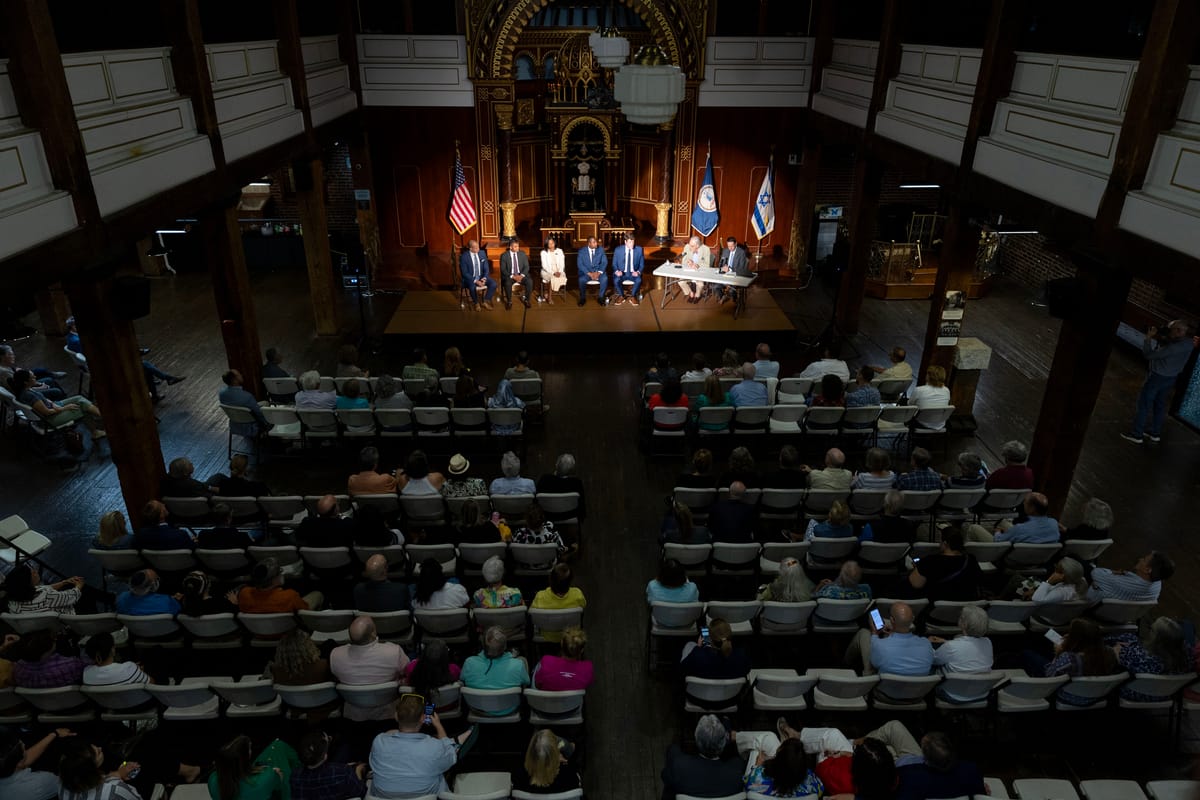What happens if there is a runoff in the mayoral election?

Five candidates are hitting the pavement and campaigning to replace outgoing Richmond Mayor Levar Stoney this November. To get the coveted spot at City Hall, though, they have to navigate the city’s unorthodox election system.
Candidates don’t have to earn the most votes overall, but rather must win in five of nine of the city's council districts.
That’s because of a ballot referendum from 2003, where at the urging of a commission spearheaded by former Governor Doug Wilder and former Congressman Thomas Bliley Jr., voters approved the process. It went into effect in 2004, and only three mayors have been elected under this system: Wilder, Dwight Jones and Stoney.
“It’s not a popular vote. It’s not who gets the most votes,” General registrar Keith Balmer said. “It’s who gets the most votes out of five out of the nine city council districts.”
The district-heavy election style decides who can qualify for the ballot, too. Each candidate had to obtain 50 signatures from each district, plus 50 more city-wide, totaling 500.
After serving two terms as mayor, Stoney is ineligible to run again, and is running for lieutenant governor of Virginia next fall.
The candidates running for Richmond mayor this year are former City Council president Michelle Mosby, former public health official Dr. Danny Avula, City Councilor Andreas Addison (1st District), software investor Harrison Roday and community organizer Maurice Neblett.
If no one reaches the five-out-of-nine threshold — if three candidates each win three districts, for example — the race will head to a runoff. In that case, the two candidates who receive the most votes city-wide will face off in another election exactly six weeks later. This year, that would land on Tuesday, Dec. 17.
In a runoff, all the voting precincts reopen, and the same rules apply where one candidate must carry at least five of the nine council districts to win.
In the extremely unlikely event that a district is tied in the runoff, keeping either candidate from getting to five, Balmer said it would default to the popular vote — whoever receives the most votes city-wide in that runoff would win.
None of this has ever actually played out — Richmond has never needed a runoff election for the mayor’s race under this model. The closest has been in 2016, when Stoney won in a crowded field that prevented any candidate from getting near 50% of the vote.
Early voting has already begun, and Balmer encouraged voters to check their registration status before heading to the polls. This is the first local election since the city’s redistricting effort two years ago, so some voters may have been assigned to new districts or polling places since they last voted.
Balmer said he’s been preparing for this fall since he started in his role three years ago.
During the 2020 election, he served in the Virginia Department of Elections as a liaison to local registrars across the state.
That year was “the most challenging election that election officials had ever seen,” Balmer said, given that it took place in the COVID pandemic. “When I got a bird’s-eye view of that by working at the state, and just the stories that I heard from other registrars, when I came on board in 2021, I began planning for Nov. 5, 2024.”
As part of that planning, Balmer said the city is sending out brochures to Richmond’s 160,000 registered voters that will include all the information they need to navigate election season.






